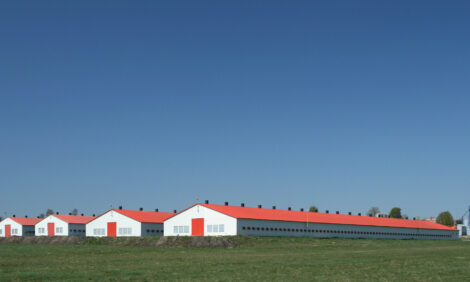



Poultry Group Denies Tariff Would Cause Inflation
SOUTH AFRICA - The South African Poultry Association (Sapa) insists that its request for safeguards against cheap frozen chicken meat imports will not raise prices beyond 10 per cent and 15 per cent from current prices, denying claims of increases of up to 50 per cent.According to Business Day, in March, the association brought an application before the International Trade Administration Commission (Itac), arguing for an increase in import tariffs on frozen poultry to protect the industry against the "onslaught of cheap imports".
Sapa says imports have led to the closure of five small and medium-sized poultry farms, with more than 2,000 jobs having been lost in the past 18 months. Larger poultry producers shed a further 3,000 jobs in the same period, it says.
The Association of Meat Importers and Exporters (Amie) is fighting the application and has approached the North Gauteng High Court for urgent relief. It is seeking access to confidential information contained in Sapa’s application. Amie’s application is due to be heard next month.
Amie says that it is in effect being deprived by Itac and Sapa of its right to present evidence in a meaningful way in its opposition to Sapa’s application. It also says the application for a tariff increase is disastrous for its members, who would be forced out of business.
Sapa CEO Kevin Lovell said on Wednesday in a statement that countries around the world were increasingly applying import controls to protect their poultry industries. It says the European Union allowed for import duties of between R5/kg and R12/kg, Canada applied a 249 per cent tariff on most imports, Norway 306 per cent and Mexico 234 per cent. In Africa, Nigeria and Kenya prohibited the import of chicken into their markets.
South Africa has seen imports of poultry products grow from an average of 8,000 tons a month in 2008 to about 20,000 tons a month last year.
Amie CEO David Wolpert said in court papers the increase requested by Sapa would dramatically affect the cost of South Africa’s largest source of protein and hence the cost of food to the poorest of the poor.
Amie said the government’s budget of R4.9m for the school nutrition programme would have to increase to R91m if the tariff increase application was successful. Alternatively, the number of children on the programme would need to be reduced by 161,689.
Mr Lovell said Sapa had been sensitive to the fact that much of the mechanically deboned meat (used in polonies and other processed products) was consumed by low-income groups, therefore no duty had been requested on this product.
"Thus the argument by meat importers that the poor are going to pay more, or have their access to chicken restricted, is false," Mr Lovell said.
He emphasised that the tariff level requested for leg quarters, which make up two-thirds of imports, is 56 per cent, an increase of about 30 per cent, far below what had been reported in the media.








